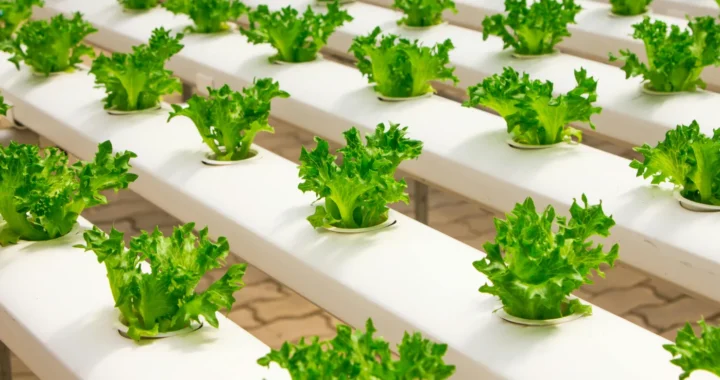Grassroots to Greatness: Empowering grassroots communities in development practices

UNDP Accelerator Lab Indonesia
The world today is a rapidly changing conundrum of crises and opportunities. This reality creates pressure points across all sectors and walks of life, with vulnerable communities at the frontline. With that in mind, integrating the voices of grassroots communities in development practices becomes key to keeping up with the pace. This approach is utilized by UNDP Accelerator Lab Indonesia, as shared in the “Grassroots to Greatness” three-year impact report.
Progress from UNDP Accelerator Lab Indonesia
The UNDP Accelerator Labs Network aims to be an incubator of on-the-ground ideas and solutions to tackle the world’s fast-moving challenges. UNDP Accelerator Lab Indonesia joined the network in 2021. Since then, the Accelerator Lab has been working with various national partners to explore interdisciplinary solutions.
The Accelerator Lab also uses innovative and unconventional tools to enable bottom-up approach. These participatory platforms bridge the gap between the formal policy-making process and grassroots communities in development practices.
“By combining digitalization and social innovation with local knowledge, the Lab has created tangible impacts at the community level and influenced bottom-up policy development,” wrote Sujala Pant, Deputy Resident Representative UNDP Indonesia. “From mapping vulnerable disaster zones and using crowdsourced data for flood prevention, to facilitating the digital transformation and innovative financing potential for local businesses, these initiatives demonstrate how innovation and partnership can drive progress that matters.”
Grassroots to Greatness
The three-year report is titled “Grassroots to Greatness: Reimagining Community-Driven Innovations for Sustainable Urban Development”. Developed in-house and supported by Green Network Asia, the report explores three thematic areas: Smart and Sustainable Cities, Poverty Reduction and Community Resilience, and Climate Action and Environment.
Among the projects shared in the report is the Urban Innovation Challenge. It was a six-month incubation program for selected grassroots innovations. The three winners were: “Participatory Urban Resilience in Slawi, Central Java” by CEGAS Studio; “Prevention of Food Loss and Waste in Jakarta” by FOKKALIS; and “Digitalization of Local Fresh Markets in Sleman, Yogyakarta” by Sayur Sleman.
Another example from the report is a project on community-based flood risk management in urban areas. With national partners, UNDP Accelerator Lab Indonesia conducted a rapid ethnographic study in seven cities and regencies to gather aspirations, needs, behaviors, and solutions from the low-income urban communities regarding flood infrastructure and mitigation actions.
Integrating Grassroots Communities in Development Practices
The report highlights the importance of integrating grassroots communities in development practices and the policy-making process. Furthermore, it reveals some key insights for a better development landscape:
- The multidimensionality of development challenges requires a transdisciplinary approach to interventions
- Inclusive approach and multi-stakeholder partnerships are key to scaling up locally driven innovations
- Digitalization and financing should function as enablers that leave no one behind
The progress report from UNDP Accelerator Indonesia also emphasizes the importance of collaborations among diverse stakeholders, including government bodies, academia, businesses, and civil society. It underscores how multi-stakeholder engagement is vital for tackling complex, rapidly changing challenges and creating solutions that are effective as well as enduring.
Read the full report here.

Subscribe to Green Network Asia
Strengthen your personal and professional development with cross-sectoral insights on sustainability-related issues and sustainable development across the Asia Pacific and beyond.

Nazalea Kusuma
Naz is the Manager for International Digital Publications at Green Network Asia. She once studied Urban and Regional Planning and has lived in multiple cities across Southeast Asia. This personal experience has exposed her to diverse peoples & cultures and enriched her perspectives. Naz is an experienced and passionate writer, editor, translator, and creative designer with a decade worth of portfolio.


 How Plant the Emirates Aims to Support Food Self-Sufficiency in the UAE
How Plant the Emirates Aims to Support Food Self-Sufficiency in the UAE  GRI’s Updated Sustainability Standards on Climate Change and Energy
GRI’s Updated Sustainability Standards on Climate Change and Energy  Looking into Biochar as a Bioremediation Agent
Looking into Biochar as a Bioremediation Agent  Australian Climate Visa for Citizens of Tuvalu: Showcasing cross-border partnership in light of the climate crisis
Australian Climate Visa for Citizens of Tuvalu: Showcasing cross-border partnership in light of the climate crisis  Nickel Mining in Raja Ampat and the Widespread Cost of Natural Resource Exploitation
Nickel Mining in Raja Ampat and the Widespread Cost of Natural Resource Exploitation  Lumbung Sosial: Challenges and Opportunities of Indonesia’s Social Barn Program
Lumbung Sosial: Challenges and Opportunities of Indonesia’s Social Barn Program